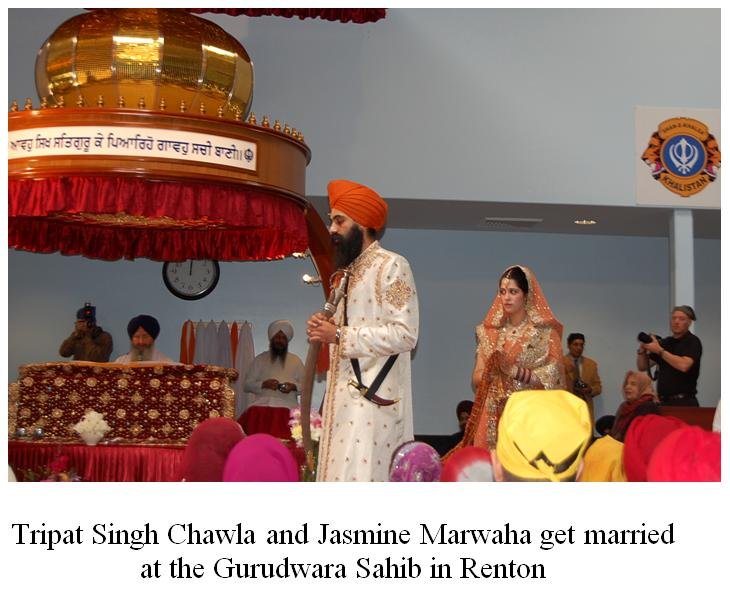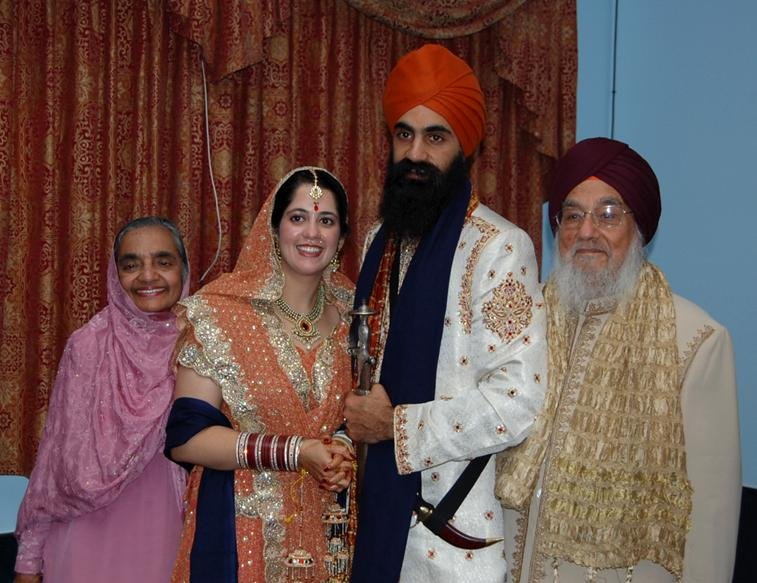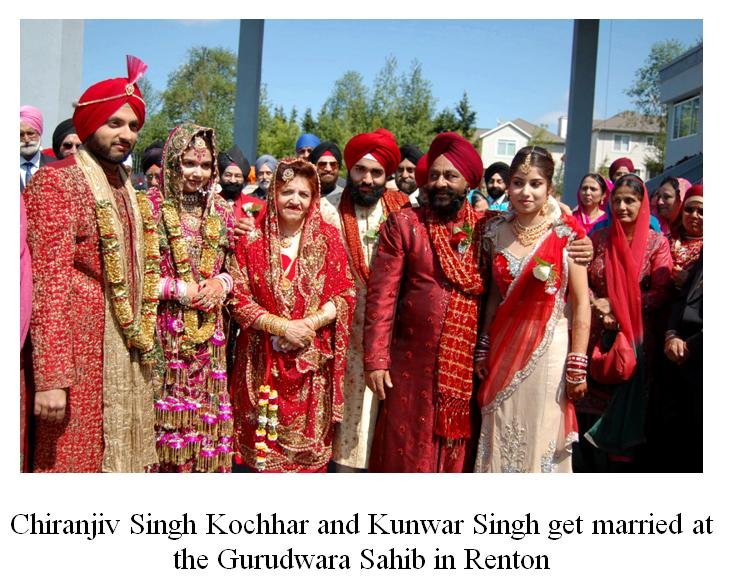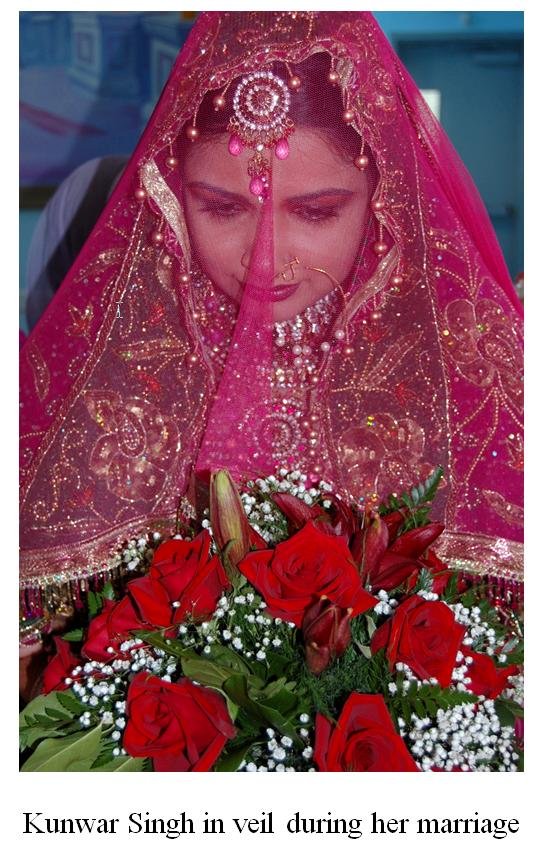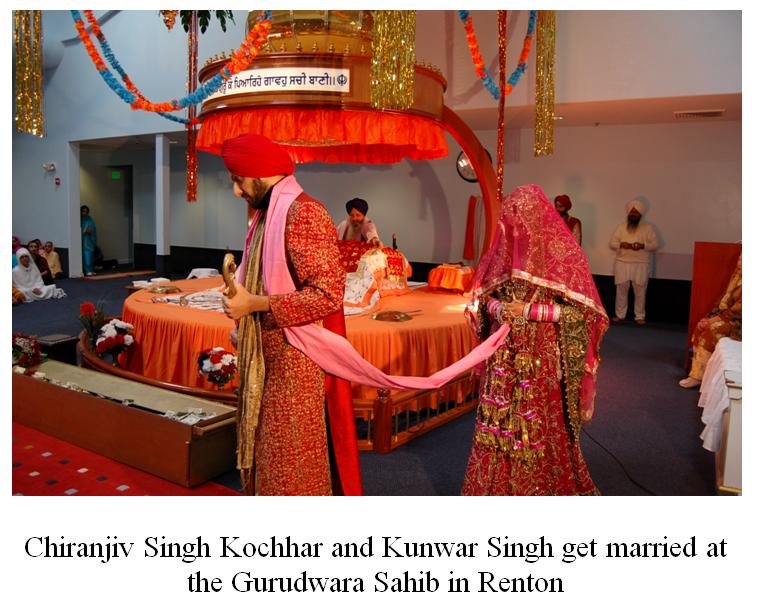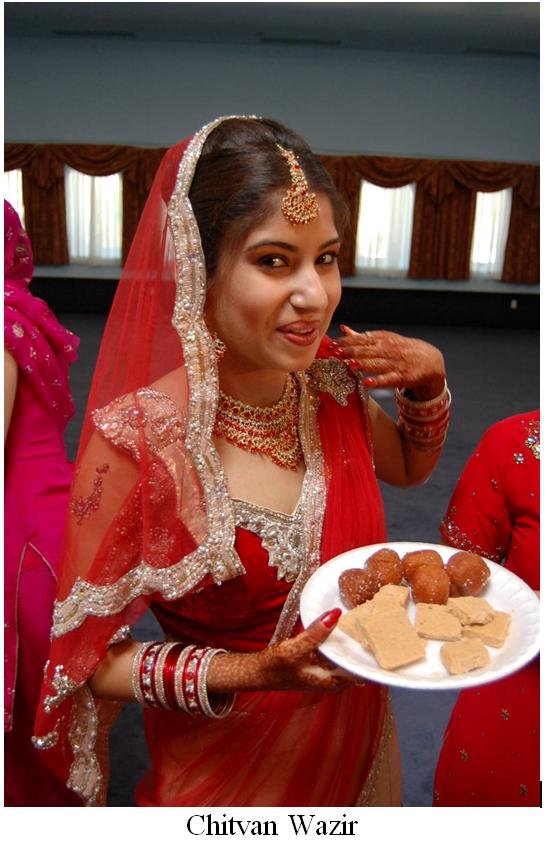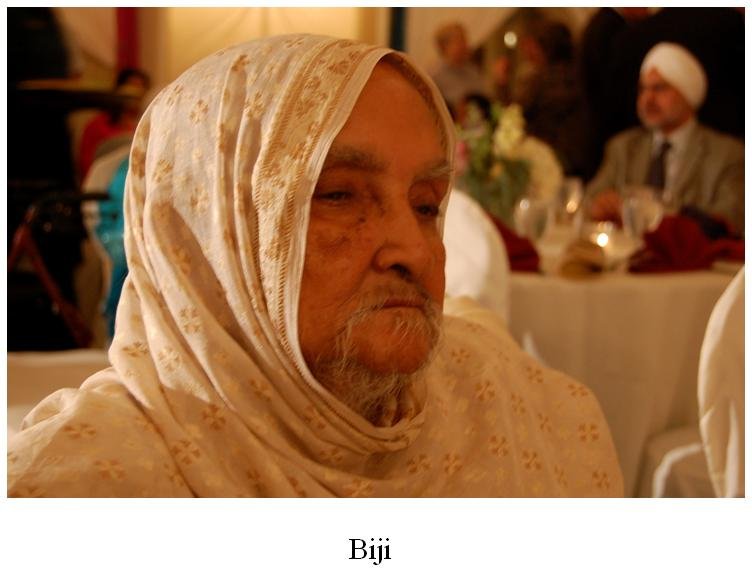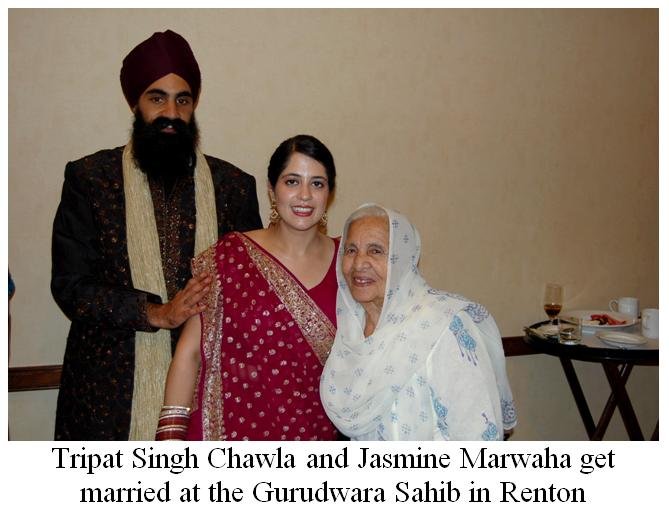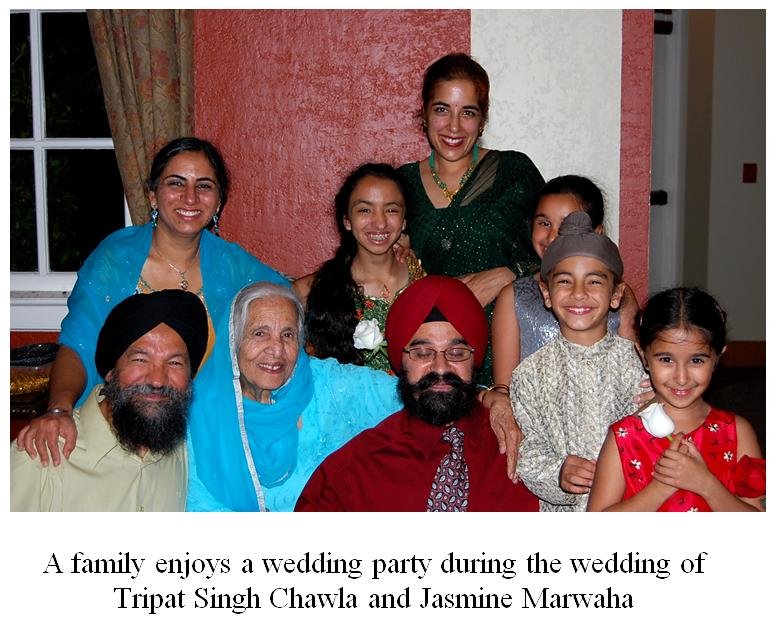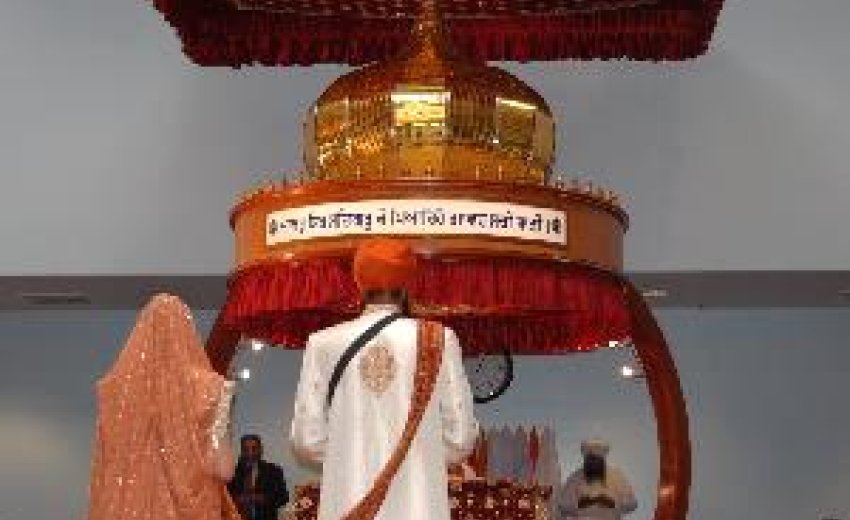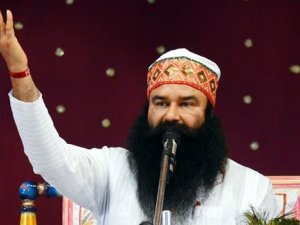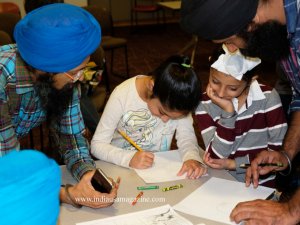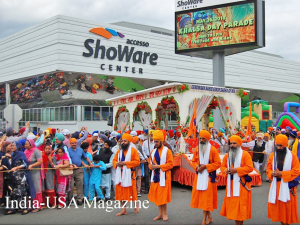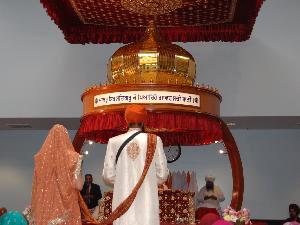 Like the beautiful earth, adorned with jewels of grass,
Like the beautiful earth, adorned with jewels of grass,
Such is the mind, within which the Love of the Lord abides.
All one's affairs are easily resolved, O Nanak,
When the Guru, the True Guru, is pleased II 1 II
"They are not
said to be husband and wife, who merely sit together. Rather they alone are called
husband and wife, who have one soul in two bodies."
(Guru Amar Das, Pauri, pg 788)
Anand Karaj is the prescribed form of Sikh marriage. The words literally translate as 'Blissful Union". The image of Sikh is reflected by “Saint-Soldier”. To embodiment this divine image, the Sikh Gurus mandated everyone to marry. This “union of bliss” leads to “union with God”. In Sikh religion marriage is an important part of life. Everyone has to get married. Even the priests or religious persons are married. We all are required to work, and care for our families. No one can boast of or be proud to stay in an unmarried life.
The Sikh marriage is a very special ceremony in which two individuals are joined in an equal partnership. It is joyous and festive event which is very family orientated and informal in its atmosphere. Sikh marriages are usually arranged with families acting as little more than introduction services. The ultimate choice is always left to the girl and boy. In some cases the boy and girl choose each other first and then seek their parents consent and blessing.
The Reht Maryada which is The Official Sikh Code of Conduct specifies that no thought should be given to the perspective spouse’s caste, race or lineage. As long as both the boy and girl profess the Sikh faith and no other faith they may be joined in wedlock by the Anand Karaj ceremony. The Reht Maryada strictly forbids any sort of dowry arrangement as marriage is not to be viewed as a business transaction. Sikhs are also discouraged from consulting horoscopes or following any other superstitions pertaining to determining a wedding date or time. The Anand Karaj ceremony can be performed in any Gurdwara or home where Sri Guru Granth Sahib has been respectfully installed. The religious ceremony cannot be performed in a hotel or banquet hall. There are no restrictions as to what time the ceremony should start or what time it should end although it is usually performed in the morning with the religious ceremony taking no more than a few hours.
An engagement ceremony called the kurmai is not required but is sometimes performed typically one week before the wedding. It is usually conducted in the Gurdwara or at the home of the boy. It involves Ardas (the common Sikh prayer), Kirtan (hymns from Sri Guru Granth Sahib) and langer (common meal) if performed in the Gurdwara. If performed at home, the bride’s family visits the house of the groom for a short time. In both cases the groom is usually presented him with a kara, kirpan or Indian sweets. The bride’s family in turn is presented with an Indian suit and sweets for the girl.
In the east marriages are typically a three day affair which begins with the Braat (groom’s family and friends) setting off for the girl’s house in the evening. They are received, entertained and hosted by the girl’s family and spend the night at her house. The following day the ceremony takes place at the local Gurdwara or at the girl’s home.
Following the religious ceremony, festivities, song and dance continue for the remainder of the day with the groom and his family departing with the bride on the following day. In the west because of the constraints on time and the difficulty of coordinating so many people, weddings are usually a one or two day affair. Either the wedding occurs in the morning followed by a dinner and dance banquet in a hall or hotel at night, or the religious ceremony and banquet take place on consecutive days. In rarer cases the religious ceremony takes place without any banquet.
